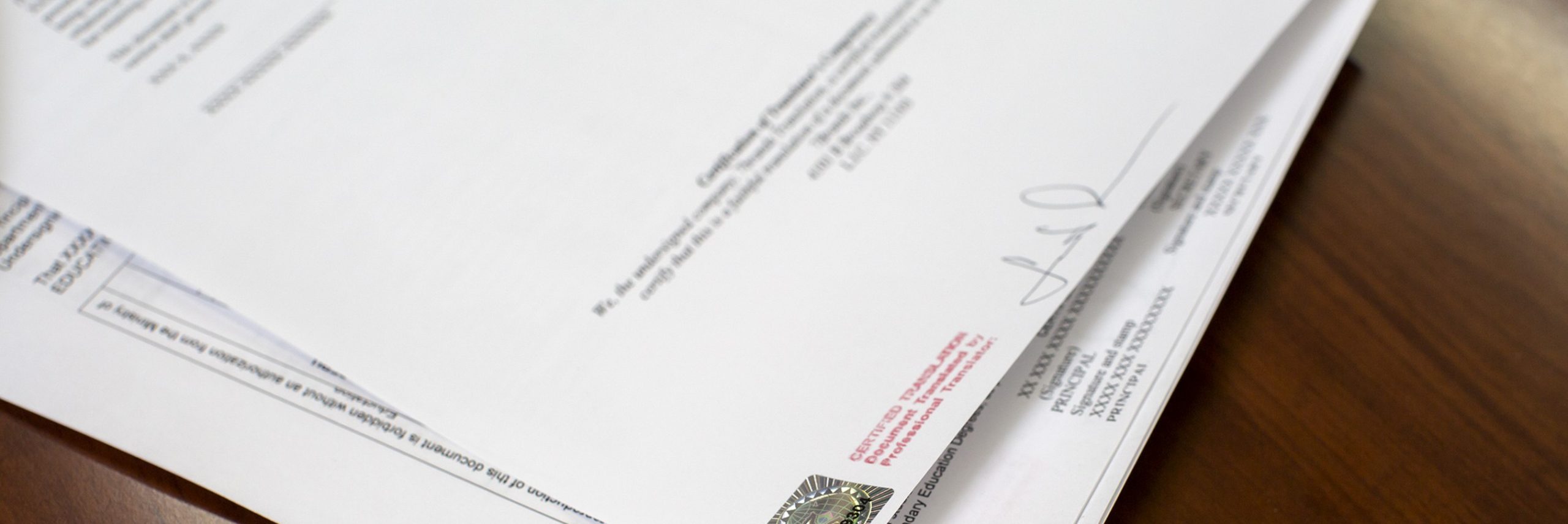The Purpose of Translation Seals & Stamps

Steps to Create the so-called Certified Translations:
Step #1
The first step is to provide a complete and accurate translation that thoroughly captures all shades of meaning from the original document. Remember that you almost always will have to sign an affidavit of accuracy.
How would you feel answering a judge in court regarding a mistranslation of a translated document that you promised to be correct?
Step #2
The next step is determining the necessary certification level. Is the document going to require notarization or county clerk certification? Perhaps it needs an Apostille certification?
After you know which certification level the legal translation requires, you should submit it to a translation company that employs legal translation specialists.
Step #3
The company then applies the seals, stamps, and affidavits as required for each translation project.
Free Quote
sales@thetranslationcompany.com
800.725.6498
Our certified translation services main page
Meaning of Company Stamps and Seals
A corporate seal affixed to a legal translation ensures that the certifying agency, most commonly a notary public, knows which company provided the translation and that the company is invested in each translation they produce.
Holographic stamps with unique identification numbers can be used on each page, so the certifying agency ensures all pages are in the original order and that nothing has been tampered with once the legal translation has left the translation agency.
American Translators Association
Providing the American Translator Association number allows the certified translation agency to know that the translator who worked on the legal translation has been independently certified as a qualified expert by an official authority.
Free Quote
sales@thetranslationcompany.com
800.725.6498
Our certified translation services main page
Getting Courts to Accept the so-called Certified Translations
There are no absolute rules regarding which translated documents a court will accept in the US. It differs from country to country, and in America, it differs from state to state and sometimes even county to county. This lack of regulation makes it difficult to ensure that a translation will be acceptable with just one form of certification.
To make a legal translation as trustworthy as possible, the company should provide as much proof of its ability as possible. By providing a company seal, holographic stamps, and an ATA ID number, translation companies increase the chances that legal translation will be accepted with no further verification needed.
In circumstances where another level of certification is requested, it is a simple matter for a translation company to provide a notarized copy of a legal translation. This will fulfill the vast majority of court requirements for authenticity.
If that is not enough, a county clerk certification can also be obtained to add a third verification form to the legal translation. Even if the courts are unwilling to recognize a company’s seal, they rarely turn down governmental seals.
Free Quote
sales@thetranslationcompany.com
800.725.6498
Our certified translation services main page
